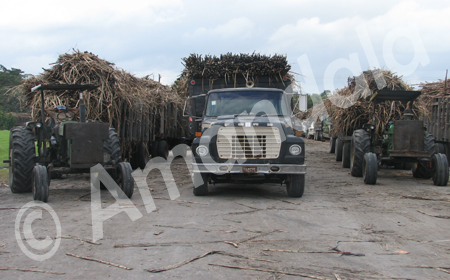ORANGE WALK–The extended turmoil in the sugar industry—the multimillion-dollar industry which not only fills breadbaskets in northern Belize, but which also forms a major pillar on which the national economy stands—is evidently heading to a major meltdown which could mean the end of the Belize Sugar Cane Farmers’ Association (BSCFA) and in the view of some, the end of the small cañero as well.
For the second consecutive year, the sugar crop is off to a late start, because the farmers and the millers have been unable to reach an accord on the terms of their business relationship. The impasse has caused financial pain among cañeros, and on Sunday, they forced the hands of their directors to disburse to them $4 million of Fairtrade money – a move which could lead to the decertification of the association by the European program, which would cause negative effects to ripple across the export sector. (See story elsewhere in this edition of Amandala.)
Alfredo Ortega, head of the BSCFA’s Orange Walk branch, said that some farmers are worried now that the door is being closed to them, and they feel that the only thing they can do is to accept things as they are.
“Some are speaking about making a compromise: ‘Let us sign the thing and move on. If our Prime Minister is not prepared to work for us, then what we can do?’” Ortega shared.
“It is very sad to hear those words from the farmers. They feel like there is no other way out and they are being left at the mercy of ASR/BSI,” he added.
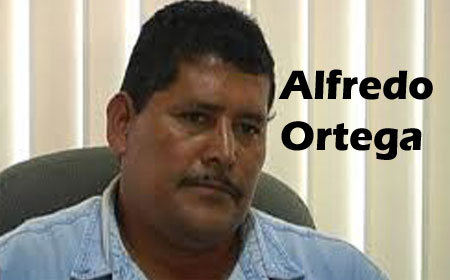
Ortega told us that the intent is to break up the association so they have no strength, and to splinter farmers. The movement, he said, is creating a fight between farmers who might end up having nothing in their hands.
“We are becoming slaves in the industry, and to multinationals,” he said, speaking of what he indicated would be a breakdown in the socio-economic dynamics of the North which could in turn splinter families.
“We feel that we need to start the crop,” said Ezequiel Cansino, chairman of the BSCFA’s Committee of Management.

Barrow said that in a meeting with the government team yesterday, Wednesday, representatives of American Sugar Refining (ASR), which bought controlling interest in the Belize Sugar Industries (BSI) in 2012, “made their position crystal clear: They will not open factory doors and start the crop unless the agreement is signed – either by the BSCFA or individual farmers such as would guarantee minimum delivery of 500,000 tons of cane [for the crop year].”
“I don’t think it will take much longer for those that want to deliver to organize themselves,” Barrow said, noting that the December 2014 agreement that was put to the last general assembly meeting of cañeros would be the agreement that the new alliance of cañeros would be asked by BSI to sign.
Barrow said that the Corozal Town division of the BSCFA has met to discuss splitting and registering itself as a separate organization, and several Orange Walk and Corozal branches have talked about forming an alliance to sign an agreement. He read a letter from Arturo Hernandez, nephew of Deputy Prime Minister Gaspar Vega, the minister under whose portfolio the industry falls. In that letter, Hernandez pleads with the Government to change the law to recognize new associations for the industry.
Michael Young, BSI’s attorney, told us that earlier today, they filed an affidavit for Belizario Carballo, BSI’s Financial Controller; BSI and its parent company, ASR, are named as respondents in a suit filed by Lucilo Teck, a cañero of Buena Vista, Corozal, asking the court to issue a mandamus, ordering the Sugar Industry Control Board to set a date on which the factory must begin to open to farmers.
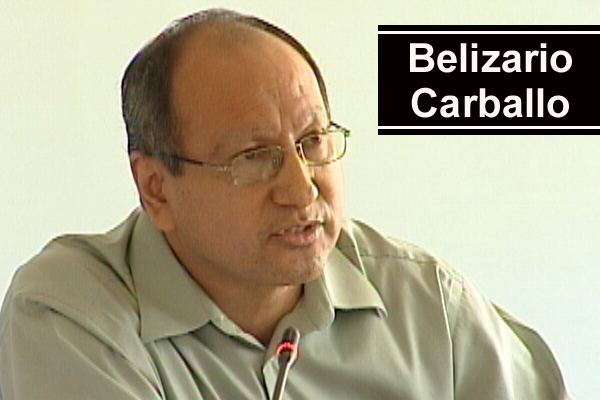
Carballo notes that in November 2013, when the cañeros were at loggerheads with the factory, Ortega’s position was that farmers could not deliver cane until an agreement is reached. The implication is that Ortega is now taking a completely different stance, saying that deliveries can proceed without the conclusion of the business agreement.
“Most in my branch are in favor of going ahead. If we get an opportunity to do that, that will happen,” Cansino told us.
Barrow recalled the circumstances that led to the fracturing of the Belize Citrus Growers Association in the south. In that case, the larger citrus producers led the formation of a rival citrus organization, Belize Citrus Mutual, after “ultimately, the biggest growers hived off and formed their own association,” Barrow pointed out.
“Government does not want to appear to be some sort of agent provocateur [in the protracted impasse in the sugar industry]. We don’t want to be responsible for any declaration of internal war among the farmers. We make the appeal: those that still don’t want to sign, don’t sign, but allow those that want to sign to sign in peace,” Barrow said.
This move may entail disassociation with the BSCFA, the only organization explicitly recognized in law as the bargaining agent for cañeros. The BSCFA has been on the scene since the 1950s, but there are indications that the organization’s branches may fracture and form a new alliance that could trump a move by Lucilo Teck, supported by a resolution of the general membership of the association, to ask the court to compel the Sugar Industry Control Board to set a date for the start of the crop year, so that farmers can start delivering their cane to the mill.
Teck’s challenge in the court is based on Section 16 of the Sugar Cane Industry Control Act, which empowers the Sugar Industry Control Board, “in respect of each crop year, to fix, after consultation with manufacturers and the Committee, the period or periods to be known as the ‘grinding season’ during which manufacturers shall accept deliveries of sugar cane from growers and cane farmers; and the dates of the commencement and the termination of such period shall be published in the Gazette.”

Barrow said that after their “most careful review of the Sugar Industry Act,” it is their “unalterable conclusion” that it is impossible to compel the BSI to accept cane deliveries to the mill and to market sugar against its will.
“Any such attempt would not just be illegal but would, as was made clear to me, …cause management to immediately shutter their factory and leave Belize,” Barrow said.
Gabriel Martinez, chairman of the Sugar Industry Control Board, told us that they were served on Wednesday afternoon with an amended court notice in the case lodged by Teck.
Martinez said that the SICB had met twice with the parties, but their main issue was resolving the dispute over the agreement.
Martinez said that he could not comment much, because they will have to appear in court tomorrow, since they are the main respondent in the case which Teck has filed in court.
Audrey Matura-Shepherd, Teck’s attorney, said that it is unfortunate that the farmers are not remaining united.
Matura-Shepherd said that it is rather amusing that Prime Minister Barrow would want the association to break up—a position which she said is against the cane farmers, who, she said, would be “giving up all their rights.”
“I don’t see why they are hell-bent on marginalizing the farmers who have opened their eyes and see [the agreement] is not the best deal,” the attorney said.
She insists that the Government should have held off on any pronouncement and “let things take its course in the court.”
“Why would any government go to that extent to destroy small farmers? Why is more prominence given to foreign investors?” Matura-Shepherd questioned.
The application by Teck is scheduled to be heard by Supreme Court Justice Shona Griffith at 9:30 a.m.
Barrow said that he expects the mandamus hearing “to fall flat…”
Cansino said that his branch was prepared to go along with the December 29, 2014 agreement and was willing to sign. He also said that the members of his branch, which he said is the biggest producing branch in Orange Walk with an estimated production of 153,000 tons, would consider splitting from the BSCFA to form a separate organization. The next big producing branch is Patchakan (in Corozal), which produces 105,000 tons, said Cansino.
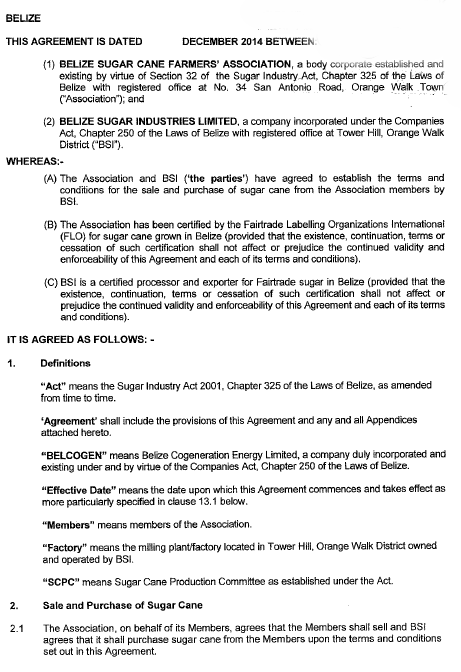
There are 9 branches of the association in Orange Walk and another 9 in Corozal. Cansino told us that he believes that there are enough dissenting groups and members, including some farmers in the San Lazaro and San Narciso branches, to meet the 500,000-ton trigger to have BSI open the factory to the cañeros.
In response to suggestions that the cañeros may be falling for a divide-and-conquer tactic which would lead to the demise of the BSCFA, their bargaining agent, Cansino, said that some farmers are themselves frustrated. He said that they have had two years of negotiations with no agreement to date.
“If every year we will be fighting like this, it does not make sense,” Cansino told us.
Cansino told us that they may be losing 68 dollars a ton, and had they been delivering the optimal 7,000 tons of cane since December 8, when the season should have ideally commenced, they could have already netted about $15 million. Whether they could still compensate for the delay with accelerated deliveries remains to be seen, and Cansino said that a lot depends on weather and the efficiency of the mill.

Ortega says that the stance of the Prime Minister indicates to him that the PM is not working on behalf of the cane farmers, because it is the cane farmers who will suffer in the end. Ortega told us that some of the outstanding issues with which some members have concerns include the new 7-year duration of the contract, as opposed to 3 years in the old contract – which, he said, would limit their ability to negotiate for changes in the contract.
He said that there are also issues with the formula for the payment of bagasse. He said that although farmers had approved the draft agreement with these points, they were not shown the full proposed agreement until recently.
Ortega said that farmers were told at their last meeting on Sunday that there are legal opportunities that can be used within the act to delay signing until after the crop year starts. He said that farmers would have signed the agreement only because they felt “cornered,” because they were told that if they don’t sign there will be no crop.
Sunday’s resolution from cañeros calls on the BSCFA’s leadership to go back to the negotiating table, as some of the farmers are now of the view that they could get a better deal.
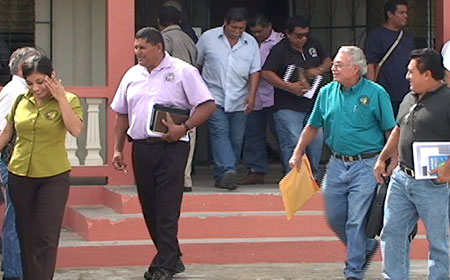
The last commercial agreement between the parties was signed on July 26, 2002, but it took effect retroactively from December 1, 2001 and it has been in effect until 2013, after which an interim agreement was signed maintaining the core of the 2002 agreement.
That agreement, a 3-year agreement with an option to roll over the deal until a new agreement is reached, focused on the 65-35 sharing of net earnings, after specified expenses are deducted. Farmers have never been paid for bagasse, and the new proposed agreement includes a clause under which farmers would receive payment for bagasse.
According to Ortega, the December 2014 revised agreement has provisions which could extend the life of the agreement to 7 years, particularly if the deal is signed by individual persons or entities other than the BSCFA.
Barrow said that he will pull no punches in saying that the unraveling of the talks in 2014 was entirely the fault of ASR/BSI, when they introduced a new entity into the document, the Harvesting, Delivery and Control Unit (HDCU), to take over the role of the Sugar Cane Production Committee (SCPC), chaired by the Government – which has as its mandate to check sugar quality and decide on what would be accepted or rejected.
“The BSCFA rejected that move and made it clear that they would not sign unless that offending clause and one other was taken out,” said Barrow.
He said that over the holidays, he kept urging BSI that they needed to concede on the two issues—which, he said, they did.
“The unraveling that took place after that clause was introduced was the fault of BSI, but thereafter, they conceded completely. I don’t say that the mistrust that was generated as a consequence of their attempt to insert [that] clause should and could have disappeared just like that, but in the end we are talking about what is concrete and what was concrete is that the offending clause was removed and for ‘brata’ a next clause was excised,” said Barrow.
Barrow said that by then, “matters had become roiled by involvement of” the National Trade Union Congress of Belize, supported by the “anti-agreement radicals…” This, he said, led to the rejection of the proposed agreement on Sunday, January 4, even after cañeros had agreed around mid-December, at a prior general meeting, to endorse the proposed deal.
As a result, there is now further delay to the start of the crop and the damage to the economy of the north and the livelihoods of each cane farmer increases as each day passes, Barrow noted.
He said that with the agreement shorn of anything potentially prejudicial to the farmers, he had expected them to say that they would sign.
Barrow said that in 2013, the sugar industry earned Belize $107.3 million. He said that sugar income underpins the households of the 5,500 farmers who make up the association.
The court issued an order back in May 2010 for the Government to amend certain parts of the sugar legislation, but Barrow concurred that the Government has “ignored” the order by not making the respective legislative changes. He questioned the ability of farmers to go to the court now to ask them to make a ruling under a law that the court had itself declared unconstitutional, especially as it relates to recognizing only the BSCFA as the agent for farmers, despite the existence of at least two other organizations: the United Cane Farmers Association and Corozal Cane Farmers Producers Association.
Although there has been talk that the Government would rush to Parliament on Monday to pass emergency laws to facilitate splinter groups of cañeros forming new organizations that would sign with BSI, he has no such intention, Barrow said.
“I don’t want to give the radicals any excuse for trying to cause trouble. I am satisfied that legally, there is no need to amend the law to allow them to do what they want to do,” said Barrow, who added that it is the constitutional right of cañeros to enter into an agreement with BSI without the BSCFA.
Barrow said that fixing the sugar laws “is a mandate of the court that we have too long ignored.” He said that after the dust has settled, the Government will move to change the law to enshrine into it the new organizations that would emerge.


